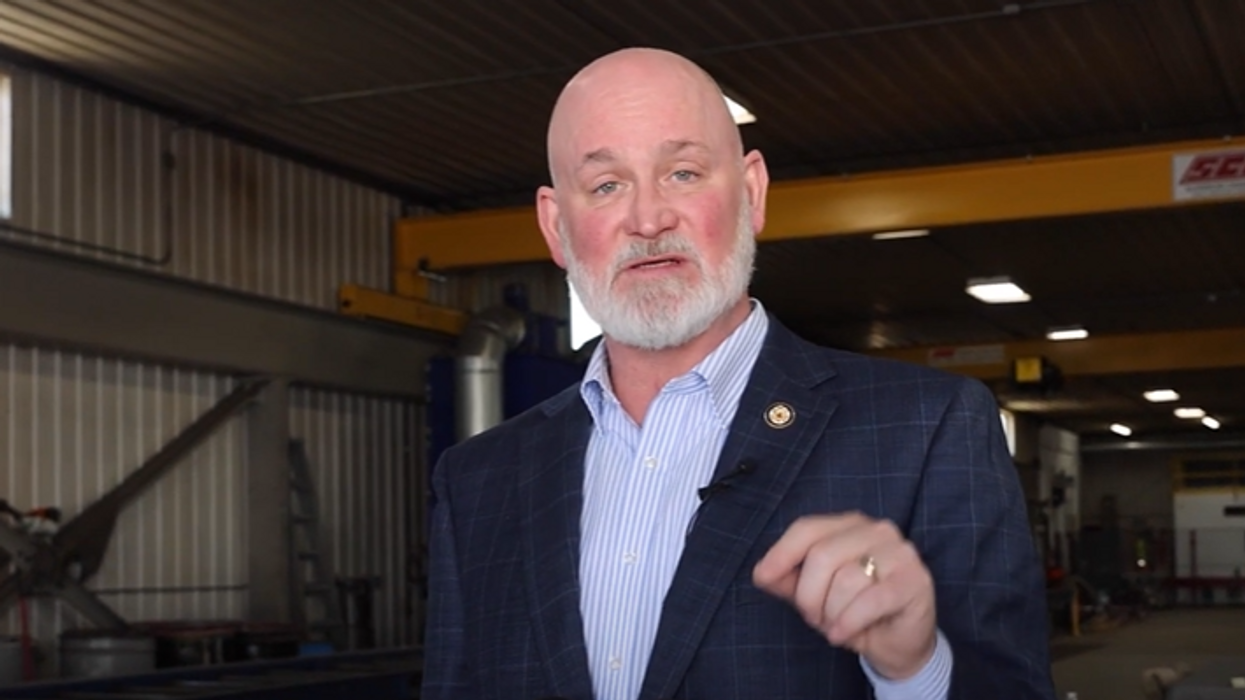After Trump Budget Passes, GOP's Van Orden Gloats In 'Big Mask-Off Moment'
In a now-deleted social media post, Rep. Derrick Van Orden (R-WI) seemed to gloat that millions would lose health coverage due to the Medicaid cuts in President Donald Trump’s “One Big Beautiful Bill Act,” which passed the House on Thursday after an overnight session.
Van Orden wrote "YES!" on the social platform X on Thursday, quoting an X user's post that said "17 million people lost health care" and "18 million kids lost school meals" after the passage of Trump's sweeping budget bill. The Wisconsin Republican's post came moments after he and his fellow GOP lawmakers voted on the legislation.
Social media users expressed shock at Van Orden’s post, despite it being shortly deleted after posting.
Former Ohio state senator Nina Turner wrote: "Republican Congressman celebrating people losing healthcare and children losing school meals."
Democratic strategist Katie Smith wrote: ".@derrickvanorden is gloating about cutting health care and taking food away from children. Cruel, awful, unfit to represent."
Rebecca Cook, Democratic candidate for Congress from Wisconsin, wrote: "@derrickvanorden is celebrating kids going hungry and people losing health coverage. Big mask off moment."
Tennessee Holler's X account said: "A real tweet from Wisconsin Republican Rep. @derrickvanorden Today’s GOP in a nutshell."
"Wisconsin Republican Rep Derrick Van Orden is very happy that he's taking health insurance and food assistance away from millions of Americans. How do people like this get elected?" wrote a user.
"Let’s all refuse to avert our eyes. They are showing us who they are. It’s embarrassing and shameful and we will pay the price for generations," said another user.
On Wednesday, Van Orden bristled at the notion that Trump was the “deciding factor” in the vote, telling reporters, “The president of the United States didn’t give us an assignment. We’re not a bunch of little bitches around here, okay?”
Trump's massive budget bill passed the Republican-controlled House of Representatives Thursday afternoon after a dramatic overnight session. The bill will now be sent to the president for his signature.
The development is being described as a major legislative win for Trump that would enable him to implement his domestic agenda.
AlterNet reached out to Van Orden's office for comment.
Reprinted with permission from Alternet.












